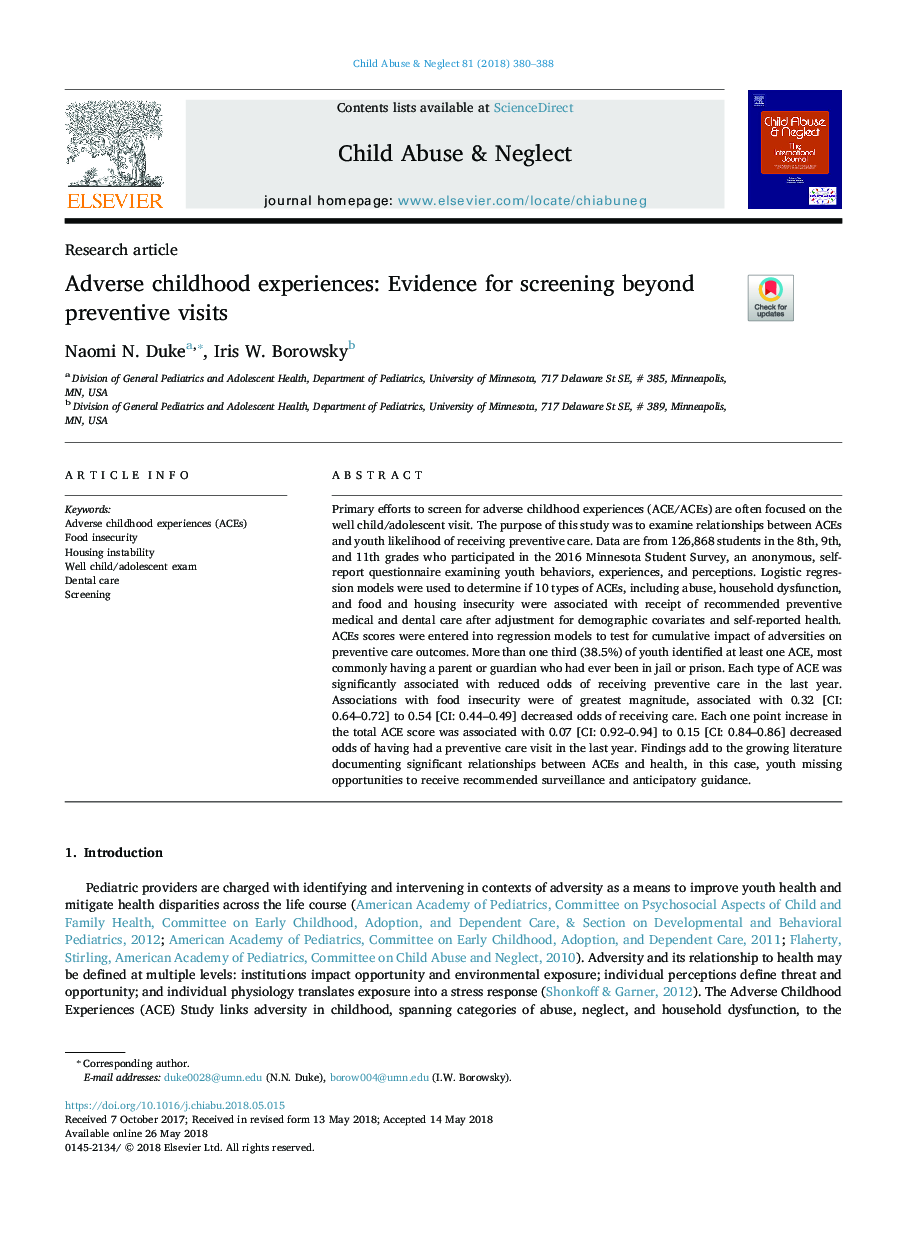| Article ID | Journal | Published Year | Pages | File Type |
|---|---|---|---|---|
| 6831902 | Child Abuse & Neglect | 2018 | 9 Pages |
Abstract
Primary efforts to screen for adverse childhood experiences (ACE/ACEs) are often focused on the well child/adolescent visit. The purpose of this study was to examine relationships between ACEs and youth likelihood of receiving preventive care. Data are from 126,868 students in the 8th, 9th, and 11th grades who participated in the 2016 Minnesota Student Survey, an anonymous, self-report questionnaire examining youth behaviors, experiences, and perceptions. Logistic regression models were used to determine if 10 types of ACEs, including abuse, household dysfunction, and food and housing insecurity were associated with receipt of recommended preventive medical and dental care after adjustment for demographic covariates and self-reported health. ACEs scores were entered into regression models to test for cumulative impact of adversities on preventive care outcomes. More than one third (38.5%) of youth identified at least one ACE, most commonly having a parent or guardian who had ever been in jail or prison. Each type of ACE was significantly associated with reduced odds of receiving preventive care in the last year. Associations with food insecurity were of greatest magnitude, associated with 0.32 [CI: 0.64-0.72] to 0.54 [CI: 0.44-0.49] decreased odds of receiving care. Each one point increase in the total ACE score was associated with 0.07 [CI: 0.92-0.94] to 0.15 [CI: 0.84-0.86] decreased odds of having had a preventive care visit in the last year. Findings add to the growing literature documenting significant relationships between ACEs and health, in this case, youth missing opportunities to receive recommended surveillance and anticipatory guidance.
Related Topics
Health Sciences
Medicine and Dentistry
Perinatology, Pediatrics and Child Health
Authors
Naomi N. Duke, Iris W. Borowsky,
